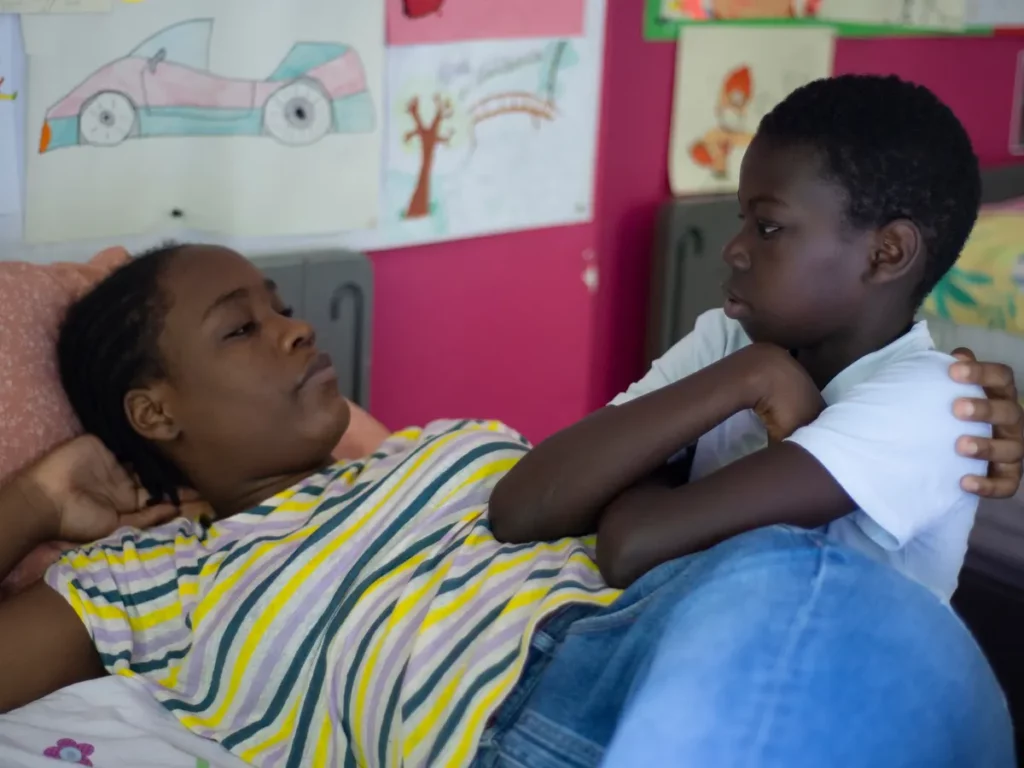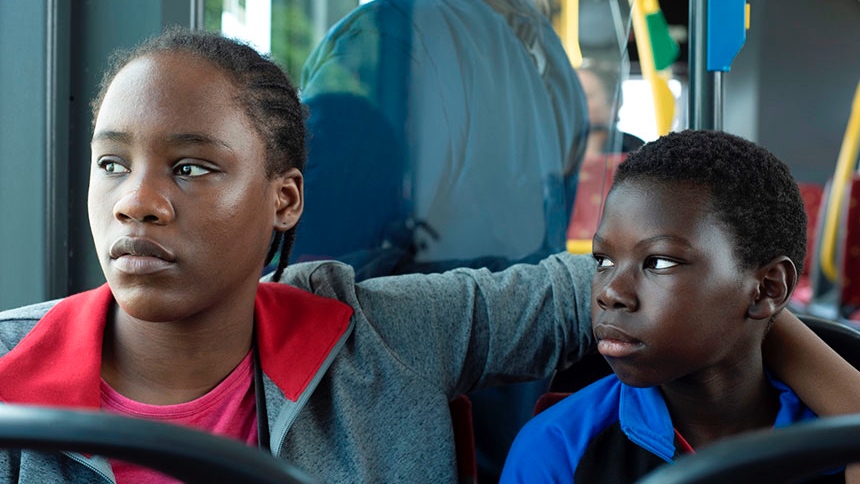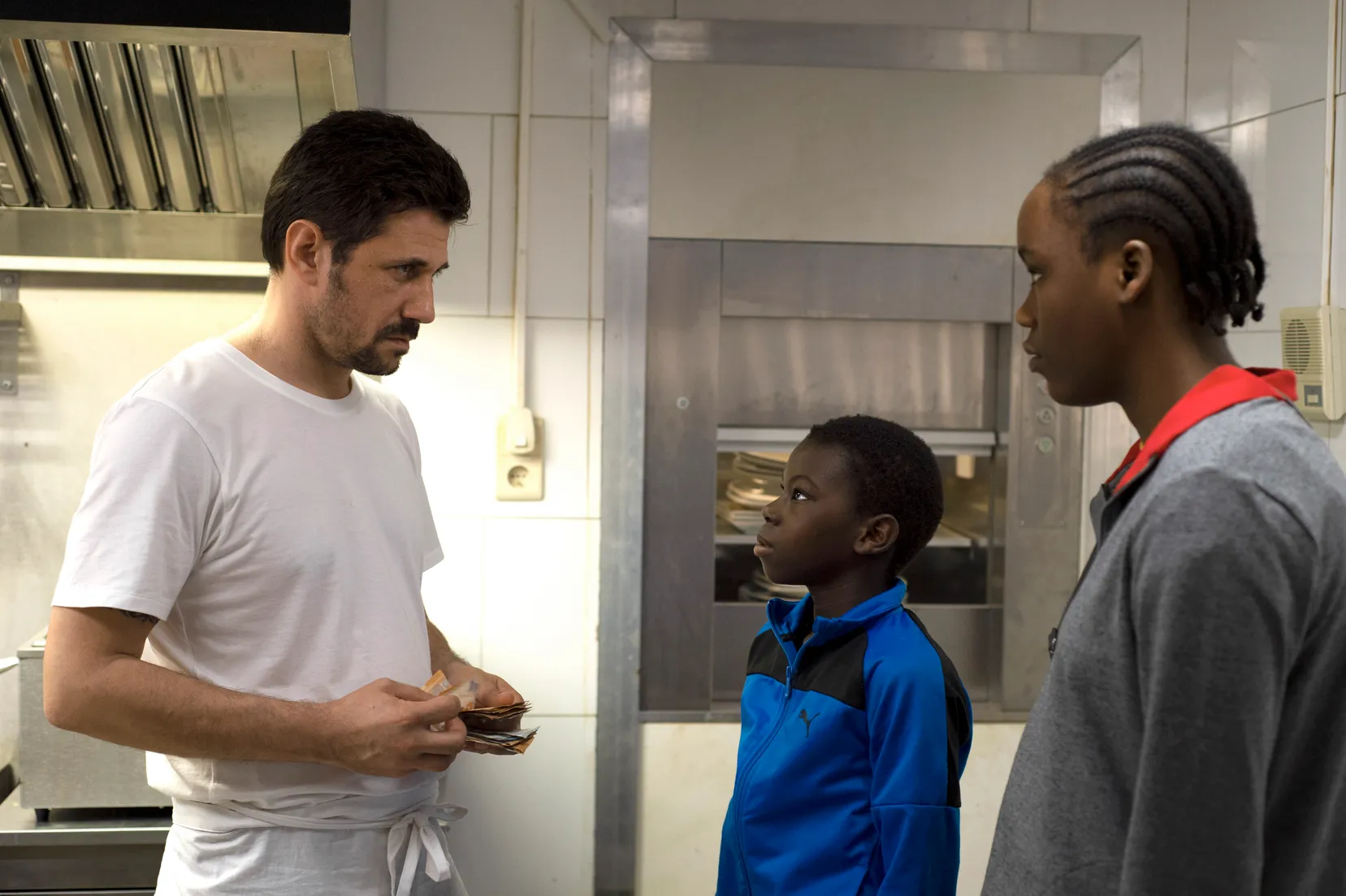Two-time Cannes winning Belgian filmmaking brothers Jean-Pierre and Luc Dardenne are firmly renowned, with legendary predecessor Ken Loach, as international cinema’s foremost chroniclers of social realist hard knocks. Their pictures—frequently about hardscrabble disenfranchisement, ethical quandaries in the face of limited options and social hierarchies that drive desperation—are close to the ground, humanist portraits of crisis, often with little respite. Across a canon including such masterworks as La Promesse, Two Days, One Night, l’enfant, The Son, The Kid with a Bike and Rosetta, the documentarian turned narrative duo takes great care in illuminating a working class ensnared in fraught socioeconomics, often through the lens of youth.
Their new film, Tori and Lokita (winner of last year’s Palme d’Or), a thriller about a pair of African children undocumented in Belgium thrust into a gauntlet of exploitation, finds them in typically fine form, delivering one of their bleakest pictures. Unlike most adolescent-themed narratives, this one has no time for coming of age—its hand-to-mouth protagonists haven’t the luxury of such naiveté.
We first meet sixteen-year-old Lokita (Joely Mbundu, carrying the weight of the world) at an immigration hearing where her plea for residency is rejected. A Benin native living undocumented in Belgium (the picture was filmed in Liège and Condroz), she’s fiercely protective of her eleven-year-old friend Tori (Pablo Schils), undocumented as well and from Cameroon. The simpatico pair depend on each other for survival and emotional support, posing as siblings in the hopes of never being separated. As Lokita tells Tori, if they stick together as they always have, everything will be fine. This assertion will be severely tested across a tightly wound 88 minutes.

The pair ekes out an existence scraping money however possible, sleeping in a cramped shelter while working nights in a pizzeria, singing karaoke for tips while running drugs for proprietor and underworld boss Betim (Alban Ukaj), offering them pittance payouts while intimidating Lokita into unwanted sexual favors.
If money is scarce with Lokita sending nearly everything home to her desperate mother, exploitation rampant. Just as Betim controls her pursestrings and body, the covert immigrant traffickers—coyote sorts who smuggled them—are forever ready to shake her down and leave her penniless.
When Betim presents an opportunity for Lokita to make more money by working in a cannabis farm far from the city, she must be away from Tori and fully out of contact, her phone confiscated. The plant, a labyrinthine, prison-like sweatshop with no windows or ventilation, renders Lokita under lockdown, isolated and without outside access. And the abuse continues.
In an effort to discover his friend’s whereabouts, concerned Tori is resourceful enough to stowaway in Betin’s car and, in perhaps the film’s nicest moment, ensure she receives a collection of his drawings as remembrance. What happens in the final act will not be revealed here, but the suspense of children in danger and the tragedies to befall such thrown-to-the-wolves innocents serves as a harsh critique of a brutal immigration system, a rebuke that is simply, mercilessly articulated in the picture’s devastating final scene.
This is harrowing subject matter, the Dardennes pulling no punches in their indictment of the unprotected being used, abused and altogether manipulated with no defense; at times I was reminded of Nadine Labaki’s powerful 2018 streets of Beirut drama Capernaum and its lost-to-the-world, undocumented Syrian street urchin making his way through that picture’s neorealist nightmare of poverty and illiteracy.
While Tori and Lokita is a scalding critique of Draconian immigration bureaucracy and the resolute evil that men do, because they can, it also questions our role to potentially intervene. In one climactic scene, a bystander with the opportunity to be good samaritan and potentially save lives during a grave juncture simply turns away. While the picture takes place in modern day Belgium it is occurring daily across the U.S. Why doesn’t empathy translate to action? The luxury of convenient evasion could prove fatal.
3 1/2 stars




